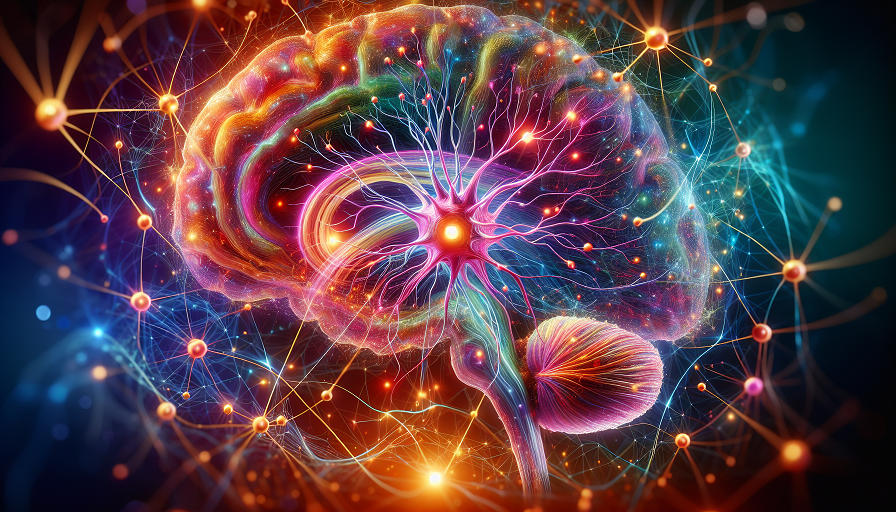
Sleep is an essential pillar of health, yet its inner workings remain one of biology’s most fascinating mysteries. While we often think of sleep as a time of rest, the brain is remarkably active during this period. At the heart of sleep’s intricate processes are neurons, the brain’s communication cells, which orchestrate sleep cycles, consolidate memories, and regulate emotional well-being.
Contents
Why Sleep Is Essential for the Brain
Sleep serves as a vital reset for the brain. During this time, neurons engage in critical processes that support learning, memory, and overall brain health. Sleep deprivation, on the other hand, impairs these functions, leading to cognitive decline and emotional instability. Here’s why sleep matters:
- Memory Consolidation: Sleep helps solidify new information and skills by strengthening neural connections formed during wakefulness.
- Emotional Regulation: Adequate sleep supports the brain’s ability to process emotions, reducing stress and anxiety.
- Brain Detoxification: Sleep activates the glymphatic system, which clears toxins and waste products from the brain.
The Role of Neurons in Regulating Sleep
Sleep is governed by complex interactions among neurons in different regions of the brain. These neurons coordinate the transitions between wakefulness, light sleep, deep sleep, and rapid eye movement (REM) sleep. Let’s delve into the neural mechanisms behind sleep regulation:
The Sleep-Wake Cycle
The sleep-wake cycle, or circadian rhythm, is a 24-hour internal clock regulated by neurons in the hypothalamus. The suprachiasmatic nucleus (SCN), often referred to as the brain’s master clock, responds to light and dark cues to synchronize the body’s sleep patterns.
During the day, neurons in the SCN signal the release of cortisol, promoting wakefulness. As evening approaches, the SCN triggers the pineal gland to produce melatonin, a hormone that prepares the brain for sleep.
The Role of the Thalamus
The thalamus acts as a gatekeeper during sleep, regulating sensory input. During deep sleep, neurons in the thalamus reduce the flow of sensory information to the cortex, allowing the brain to focus on internal processes like memory consolidation and neural repair.
Neural Oscillations
Sleep stages are characterized by specific patterns of neural activity, known as oscillations:
- Slow-Wave Sleep (SWS): During deep sleep, neurons in the cortex and thalamus generate slow, synchronized oscillations, facilitating memory consolidation and synaptic pruning.
- REM Sleep: REM sleep is marked by rapid, desynchronized activity in the cortex, as well as intense neural activity in the brainstem, which generates dreams and aids emotional processing.
The Brainstem and Sleep Transitions
Neurons in the brainstem control the transitions between sleep stages. The reticular activating system (RAS) promotes wakefulness, while the ventrolateral preoptic nucleus (VLPO) in the hypothalamus suppresses wake-promoting signals, allowing sleep to take over.
Neurons and Memory Consolidation During Sleep
One of sleep’s most critical functions is memory consolidation, the process by which the brain transforms short-term memories into long-term storage. Neurons play a central role in this process:
Hippocampal-Cortical Dialogue
During slow-wave sleep, neurons in the hippocampus and cortex engage in a dialogue to transfer memories. The hippocampus replays patterns of activity from the day, while the cortex integrates this information into existing networks.
Synaptic Homeostasis
Sleep helps maintain synaptic homeostasis by pruning unnecessary neural connections and strengthening those that are most important. This process ensures that the brain remains efficient and adaptable.
REM Sleep and Creativity
During REM sleep, neurons in the prefrontal cortex and limbic system engage in creative problem-solving and emotional processing. This stage is essential for connecting disparate ideas and generating insights.
The Consequences of Sleep Deprivation on Neurons
Sleep deprivation disrupts neuronal function, impairing the brain’s ability to learn, adapt, and regulate emotions. Here are some of the consequences:
- Impaired Synaptic Plasticity: Lack of sleep reduces the brain’s capacity for neuroplasticity, making it harder to form new memories and learn new skills.
- Increased Neuroinflammation: Chronic sleep deprivation triggers neuroinflammation, damaging neurons and contributing to cognitive decline.
- Emotional Dysregulation: Sleep loss affects neurons in the amygdala, heightening emotional reactivity and increasing the risk of anxiety and depression.
- Reduced Detoxification: Without adequate sleep, the glymphatic system cannot effectively remove toxins, increasing the risk of neurodegenerative diseases like Alzheimer’s.
How to Support Neuronal Health Through Better Sleep
Protecting your neurons and optimizing sleep requires adopting healthy sleep habits. Here are some evidence-based strategies:
Maintain a Consistent Sleep Schedule
Go to bed and wake up at the same time every day, even on weekends. This consistency helps regulate the SCN and promotes a stable sleep-wake cycle.
Create a Sleep-Friendly Environment
Optimize your bedroom for rest by keeping it dark, quiet, and cool. Use blackout curtains, white noise machines, or earplugs if necessary.
Limit Stimulants
Avoid caffeine and nicotine in the afternoon and evening, as these substances can interfere with the activity of sleep-promoting neurons.
Prioritize Relaxation
Engage in calming activities before bed, such as reading, meditating, or practicing deep breathing. These practices help activate the VLPO and prepare your brain for sleep.
Reduce Screen Time
Limit exposure to screens at least an hour before bed. Blue light suppresses melatonin production, disrupting the natural sleep cycle.
The Neural Symphony of Sleep
Sleep is far more than a passive state; it is a dynamic process orchestrated by neurons across multiple brain regions. From regulating sleep cycles to consolidating memories and clearing toxins, neurons play a vital role in maintaining brain health during sleep. Understanding these mechanisms highlights the importance of prioritizing quality rest for cognitive, emotional, and physical well-being.
By adopting healthy sleep habits and supporting neuronal function, you can unlock the full potential of your sleeping brain. In doing so, you not only improve your nightly rest but also lay the foundation for a sharper, more adaptable mind during waking hours.

